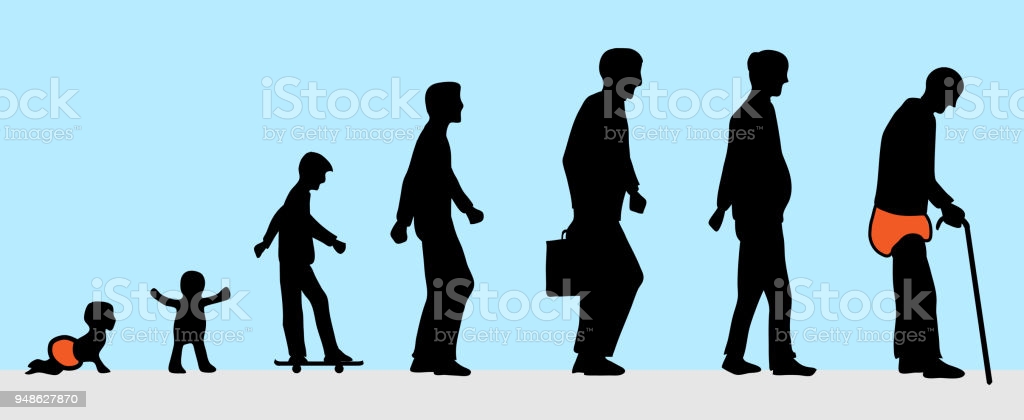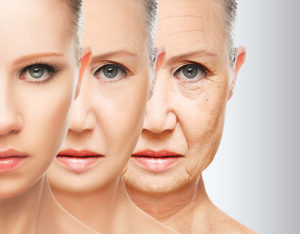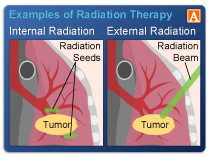
Diagnosed with Cancer? Your two greatest challenges are understanding cancer and understanding possible side effects from chemo and radiation. Knowledge is Power!
Learn about conventional, complementary, and integrative therapies.
Dealing with treatment side effects? Learn about evidence-based therapies to alleviate your symptoms.
Click the orange button to the right to learn more.
- You are here:
- Home »
- Blog »
- side effects ID and prevention »
- Accelerated Aging in Cancer Survivors-
Accelerated Aging in Cancer Survivors-

Cancer therapies cause accelerated aging. We know this because cancer survivors develop age-related health conditions faster than normal people. In addition, we know this because most of us have seen cancer patients undergo chemo and radiation only to age before our eyes in the weeks and months following a cancer diagnosis.
Unfortunately, the studies linked and excerpted below present explanations of how chemo and radiation cause cancer survivors to age faster than normal people as a tautology. Cancer therapies cause premature aging because survivors age prematurely. At least that’s how I read the studies below.
I am a long-term cancer survivor who lives as anti-cancer a life as possible. Therefore, I want to learn about long-term side-effects caused by chemotherapy and radiation.
Cancer survivors exhibit co-morbidities such as:
- Frailty
- Weakness
- Secondary cancers
- Increased risk of relapse
- Heart Failure
- Cognitive impairment
etc.

beauty concept skin aging. anti-aging procedures, rejuvenation, lifting, tightening of facial skin, restoration of youthful skin anti-wrinkle
Don’t misunderstand me. It is true that if a person undergoes aggressive chemo or radiation, he/she will develop age-related diseases. And it is true that cancer survivors become frail, weaken, develop heart disease, etc.
I’m simply saying that studies on the subject linked and excerpted below don’t really explain why chemo and radiation cause age-related co-morbidities. And the studies certainly don’t offer therapies to slow or heal premature aging.
The real issue, as a cancer survivor himself who is facing accelerated aging, is what, if anything, I can do about it. When I use the phrase “do about it” I’m really just talking about personal experience and research identifying
- nutrition
- exercise
- supplementation
- sleep (stress)
I guess I’m saying that the low-tech therapies I’ve listed above are the only treatments I’ve research that provide evidence of slowed aging. I think that conventional medicine would have come up with a more high-tech therapy by now.
These are eight of the blog posts that I have authored that document aging, inflammation, senescence, etc.
- Anti-Aging Therapies- “Want to Live Longer?”
- Aging Skin- Reduce Risk Skin Cancer
- Healing Chemotherapy-Induced Senescence aka Aging
- Anti-Aging or Anti- Immune System Aging?
- Are Anti-Aging Therapies such as N.A.D., Legit?
- Myeloma- Anti-aging- Supps, Sleep, Exercise
- Chemo Ages BC patients 10-15 years?!?!
- Anti-Aging- Inflammation, Cognitive Function
Are you a cancer survivor? Would you like to reduce your risk of a relapse, secondary cancer, premature aging, heart disease, cognitive dysfunction, etc? Scroll down the page, post a question and I will reply to you ASAP.
Thank you,
David Emerson
- Cancer Survivor
- Cancer Coach
- Director PeopleBeatingCancer
Cancer Treatment-Induced Accelerated Aging in Cancer Survivors: Biology and Assessment
“Clinically, “accelerated aging” phenotypes in cancer survivors are characterized by the development of age-related health conditions, including premature mortality and comorbidities – secondary cancers, frailty, chronic organ dysfunction, and cognitive impairment which can impact long-term health and quality of life in cancer survivors…
Growing evidence demonstrates that individuals with cancer age faster, so their biological age appears to be older than their chronological age (so-called accelerated aging). According to the definition proposed by Baker and Sprott [2], biological age is characterized by the biological parameter[s] of an organism, either alone or in some multivariate composite.
Clinically, “accelerated aging” phenotypes in cancer survivors are characterized by the development of age-related health conditions, including premature mortality and comorbidities –
- secondary cancers,
- frailty,
- chronic organ dysfunction,
- and cognitive impairment
which can impact long-term health and quality of life in cancer survivors. Unfortunately, many therapies used to treat or control cancer may lead to unintended consequences that appear to accelerate aging process [3,4,5].
Cancer treatments can lead to accelerated aging by inciting hallmarks of aging, including
- telomere attrition,
- stem cell exhaustion,
- cellular senescence,
- DNA damage, and
- epigenetic alterations [6,7]…
Epidemiological Evidence for Treatment-Induced Accelerated Aging
- Increased Frailty in Cancer Survivors
- Increased Risk of Comorbidities and Premature Mortality in Cancer Survivors
- Other studies reported an increased risk of cardiovascular diseases (CVDs) in both childhood and adult cancer survivors after treatment.
- Another CCSS study (n = 6,148) assessed the increased risk of late mortality (more than five years after diagnosis) in long-term survivors of childhood acute lymphoblastic leukemia (ALL) as a result of their cancer treatment [19].
- Cellular Senescence and Aging
- SASP and Tumorigenesis
- Telomere Attrition
- Stem Cell Exhaustion
- DNA Damage
- Epigenetic Alterations
Aging in Adult Survivors of Childhood Cancer: Implications for Future Care
“Changes to diagnostic and treatment protocols for pediatric cancer have improved survival. However, cancer and cancer treatments are thought to increase risk of early or accelerated aging in survivors (Fig (Fig11).1,2
Aging may be defined as the progressive decline in bodily functions in living organisms,3 the rate of which varies due to differences in genetics and environmental exposures.4 Childhood cancer and cancer treatments are associated with early onset of chronic health conditions, physical frailty, and cognitive impairment typically observed in older adults.5–7
Cellular signs of early aging are also evident, including shortened telomere length and chronic inflammation.8–11 This manuscript presents a review of the literature on early or accelerated aging in childhood cancer survivors, focusing on cellular, physiological, and behavioral research in human and animal studies, to better understand the risk factors, research gaps, and clinical implications of early aging in this population and aid in future care planning…
CELLULAR AGING: TELOMERES, INFLAMMATION, AND IMMUNE CHANGES
Telomere shortening is a biomarker of aging at the cellular and organism levels.12 It is a normal feature of mitosis and cellular senescence; over time, telomeres reach a certain length, and cells no longer divide and eventually die.13 Telomere shortening occurs with increasing chronological age; it is also associated with sex, health behaviors, medical history, age-related diseases, and cancer treatment.
Associations between telomere length and age-related decline in older adults have been inconsistent.14 In adult survivors of childhood cancers from the St Jude Lifetime Cohort, leukocyte telomere lengths were shorter than same-age controls and similar to those who were about 11-12 years older.8 The rate of change in telomere length associated with increasing age was similar for survivors and controls, suggesting that survivors’ cells age earlier but not at an accelerated rate as some have proposed.1…5


